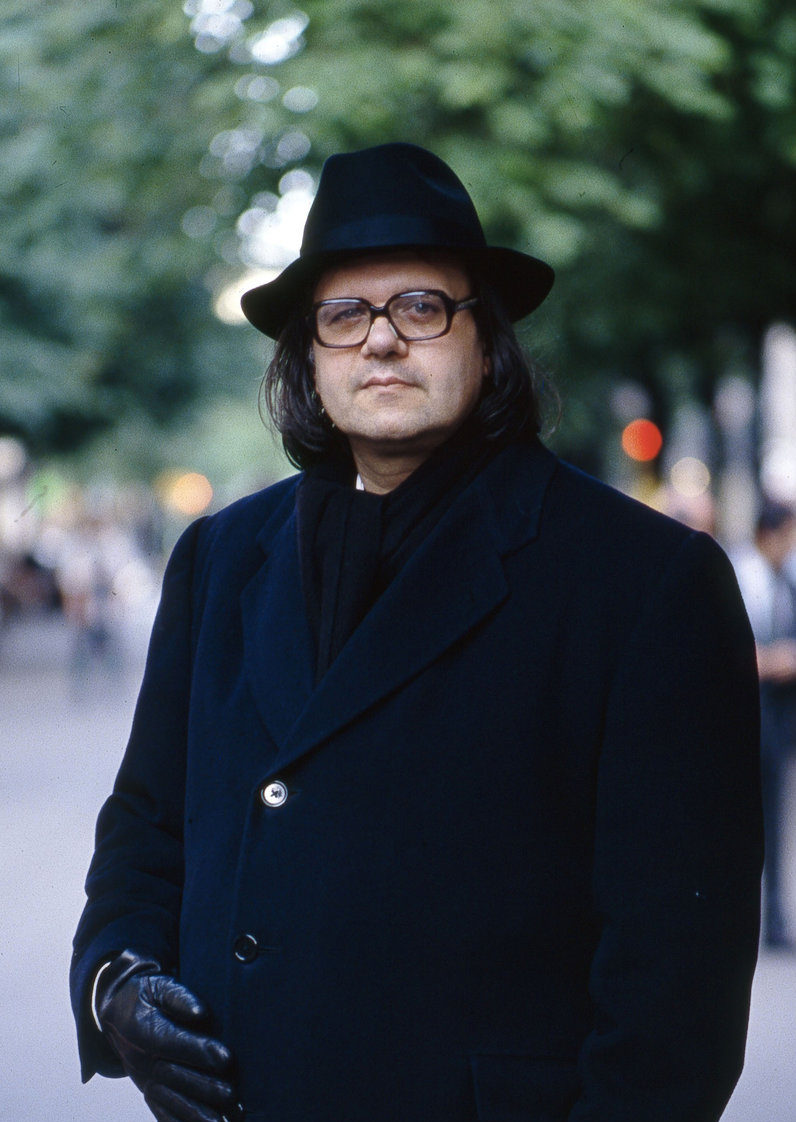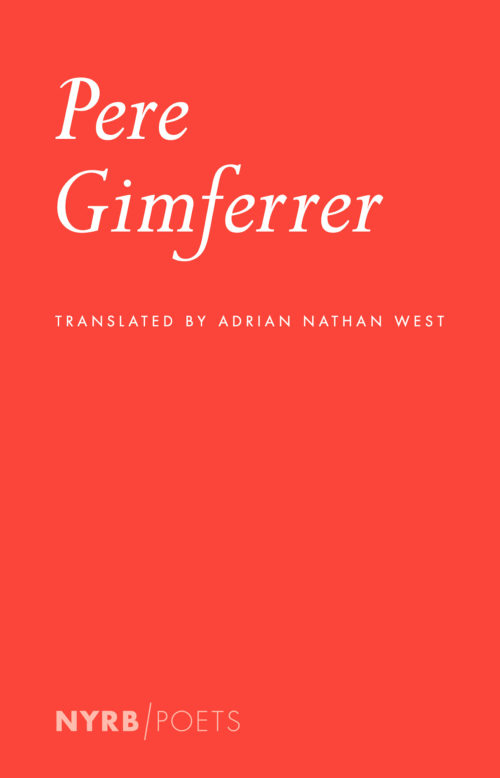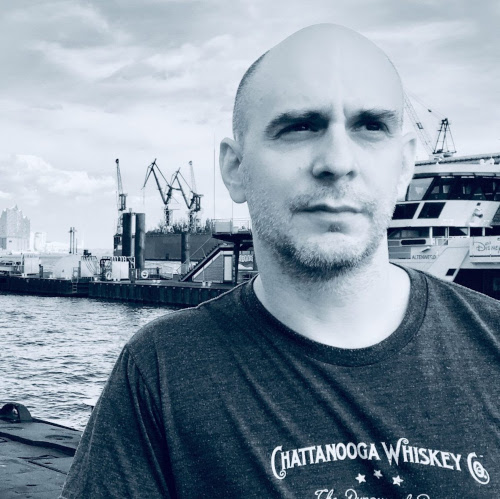The sea has its mechanics as love has its symbols.With what racket the red curtain risesor in this proscenium above an empty stagea rumor of statues resounds, iris fronds, cutlasses,doves that descend and softly alight.A chessboard of verdure, composed of cravats.The blight on my cheek recollects time pastand in my heart seethes a droplet of lead.My hand was to my breast, the clock corroboratesthe reason for the clouds and their stiffening sails.An upsurging tide, roses on tightropesover the voltaic arc of Venice’s nightthat year of my lost youth,marble on the Dogana, as Pound has remarkedand the mass of a casket in the viscous canals.Go on, much further, deep in the night,over the ducal tapestry, intertwined shadows,princes or nereids laid waste by time.What purity, a nude or an ephebe deceasedin clouded remembering’s boundless halls.Was I there? Must I believe I was that,and that the suffering that harrowed my flesh?How fragile I was then, and why. Is it trueyou demur, snowflakes, in the snowcapped park,that today receives on its face your loveor the one that died of beauty off in Venice?The live stones speak of a memory present.As the vein impels its conduits of blood,it comes, leaves, returns to the planet,and life thus expands in a silent affray,the past is affirmed at this uncertain hour.So much have I written, so much I wrote then. I don’t knowif it was worth it or is. You, for whommy life is surer, and you others, who heara strange sphere in my verse, will know its signet or art.Speak it, or speak it, you others, and sweetly, perchance,beguile my sorrow. Night, night in Venicefive years now, how so? I amwho I was then, I know how to tauten, once morelet pure beauty wound me as before, violinthat dissevers an estival nightwhen the world has buckled from its impatiencefor beauty. I cried, and leaned my elbows on the balconyas in a hackneyed romantic poem, and the airbirthed disturbances of blue smoke and camphor.It roved in the alcoves, beneath the damp granite,an archangel or swallow or courser of flamesthat the aftermost powers dispatched to my dream. I cried, I cried, I cried.And how could it be so lovely and so sad?Water and cold ruby, diabolic transparencyburned in my flesh a tattoo of light.Night frozen, night blazing, night of my ownas if I were living it today! It is somber and sweetto have left behind Venice where we allwere punished by being so young,and to chase us today through the cavernous chamberssurrounded by horsemen dissolved by a mirrornegating, with its double, the truth of this poem. Oda a Venecia ante el mar de los teatros Las copas falsas, el veneno y la calavera de los teatros. —García Lorca A Joaquín Marco Tiene el mar su mecánica como el amor sus símbolos.Con qué trajín se alza una cortina rojao en esta embocadura de escenario vacíosuena un rumor de estatuas, hojas de lirio, alfanjes,palomas que descienden y suavemente pósanse.Componer con chalinas un ajedrez verdoso.El moho en mi mejilla recuerda el tiempo idoy una gota de plomo hierve en mi corazón.Llevé la mano al pecho, y el reloj corroborala razón de las nubes y su velamen yerto.Asciende una marea, rosas equilibristassobre el arco voltaico de la noche en Veneciaaquel año de mi adolescencia perdida,mármol en la Dogana como observaba Poundy la masa de un féretro en los densos canales.Id más allá, muy lejos aún, hondo en la noche,sobre el tapiz del Dux, sombras entretejidas,príncipes o nereidas que el tiempo destruyó.Qué pureza un desnudo o adolescente muertoen las inmensas salas del recuerdo en penumbra.¿Estuve aquí? ¿Habré de creer que éste he sidoy éste fue el sufrimiento que punzaba mi piel?Qué frágil era entonces, y por qué. ¿Es más verdad,copos que os diferís en el parque nevado,el que hoy acoge así vuestro amor en el rostroo aquel que allá en Venecia de belleza murió?Las piedras vivas hablan de un recuerdo presente.Como la vena insiste sus conductos de sangre,va, viene y se remonta nuevamente al planetay así la vida expande en batán silencioso,el pasado se afirma en mí a esta hora incierta.Tanto he escrito, y entonces tanto escribí. No sési valía la pena o la vale. Tú, por quienes más cierta mi vida, y vosotros, que oísen mi verso otra estera, sabréis su signo o arte.Dilo, pues, o decidlo, y dulcemente acasomintáis a mi tristeza. Noche, noche en Veneciava para cinco años, ¿cómo tan lejos? Soyel que fui entonces, sé tensarme y ser heridopor la pura belleza como entonces, violínque parte en dos el aire de una noche de estíocuando el mundo no puede soportar su ansiedadde ser bello. Lloraba yo, acodado al balcóncomo en un mal poema romántico, y el airepromovía disturbios de humo azul y alcanfor.Bogaba en las alcobas, bajo el granito húmedo,un arcángel o sauce o cisne o corcel de llamaque las potencias últimas enviaban a mi sueño. Lloré, lloré, lloré.¿Y cómo pudo ser tan hermoso y tan triste?Agua y frío rubí, transparencia diabólicagrababan en mi carne un tatuaje de luz.¡Helada noche, ardiente noche, noche miacomo si hoy la viviera! Es doloroso y dulcehaber dejado atrás la Venecia en que todospara nuestro castigo fuimos adolescentesy perseguirnos hoy por las salas vacíasen ronda de jinetes que disuelve un espejonegando, con su doble, la realidad de este poema.
Ode to Venice Before the Sea of Theaters
The false cups, the poison, and the skull of the theaters.—García LorcaTo Joaquín Marco
Feature Date
- August 16, 2022
Series
- Translation
Selected By
Share This Poem
Print This Poem
“Ode to Venice Before the Sea of Theaters” from PERE GIMFERRER: by Pere Gimferrer.
Published by New York Review Books on May 25, 2021.
English Copyright © 2021 by Adrian Nathan West .
All rights reserved.
Reproduced by Poetry Daily with permission.

Pere Gimferrer is the author of more than thirty books in Catalan, Spanish, and Italian. A member of the Real Academia Española and the Reial Acadèmia de Bones Lletres de Barcelona, he has won numerous accolades for his work, including Spain’s National Poetry Prize and the Ramon Llull Novel Award.

New York, New York
"Gimferrer lives in and for poetry . . . His virtuosity shows he is capable of self-renewal and change without repudiating himself. Few authors are capable of such breadth and depth."
—Juan Goytisolo
"One of our writers with the greatest firsthand acquaintance with the great European cultural tradition, he is also one of those who has taken farthest the salutary and audacious irreverence of pop."
—Antonio Muñoz Molina
Poetry Daily Depends on You
With your support, we make reading the best contemporary poetry a treasured daily experience. Consider a contribution today.




